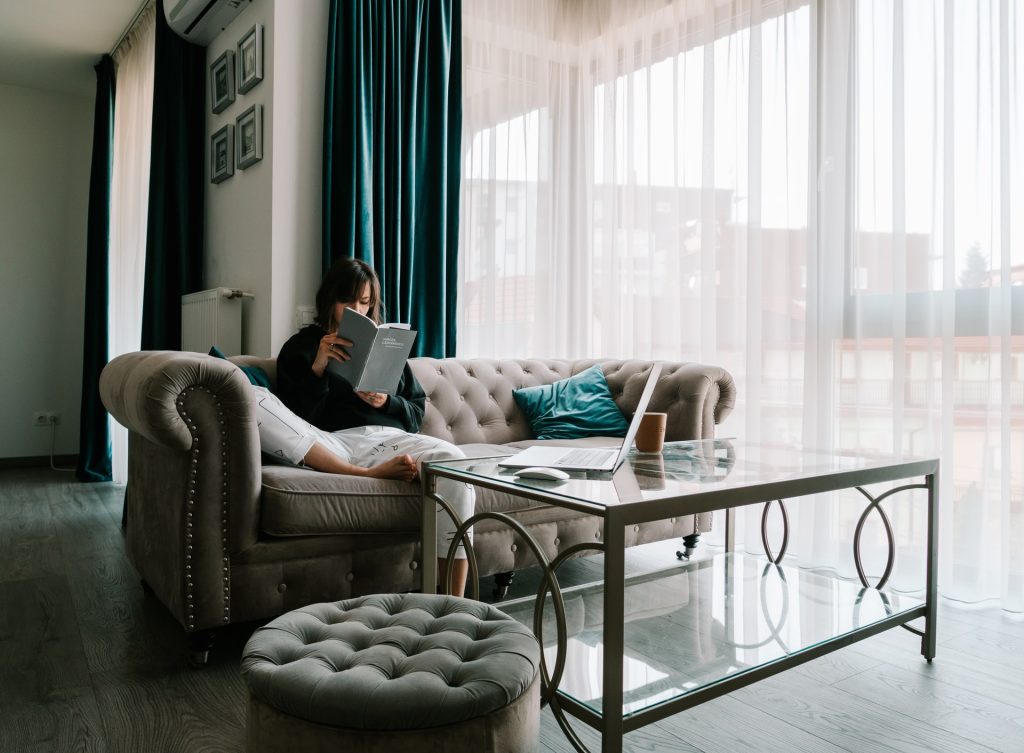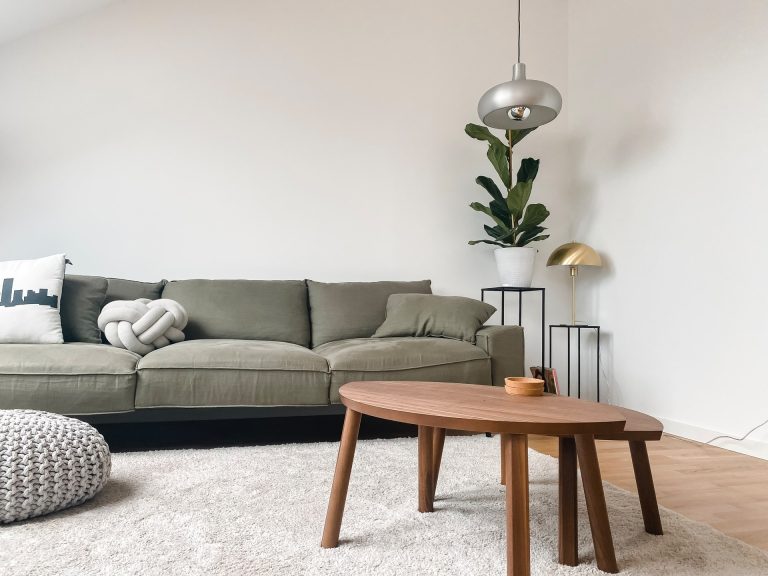Clutter may seem harmless, but having a lot of it can mess up work and relationships. People often say that a cluttered desk is a sign of a creative mind, but what if the clutter gets overwhelming?
That overwhelming feeling increases our stress and anxiety. How? Research shows that the more clutter you have, the higher your cortisol levels are—our main stress hormone.
And the chances of getting physical and mental problems increases when a person is under a lot of stress.
Shockingly, it doesn’t end there. Another research has shown cluttered rooms affecting people’s sleep negatively. And we know how sleep deprivation hurts our daily function, so people living with clutter end up with this degrading cycle of: stressful day→no sleep→lack of energy→stressful day. Not to mention the risk of people eating more under stress, which is a whole other topic.
Whether it’s a messy desk, stuffy closet, or a garage filled with hoarded car parts, everyone could use a little tidying up or decluttering.

Benefits of Decluttering Your Home
Decluttering is the act of removing clutter or organizing your things—usually done when clutter impedes a person’s quality of life. It’s important to remove clutter from your home or workspace, because, as mentioned earlier, clutter is detrimental to a person’s health. After decluttering, you’ll notice the many benefits of a clutter-free life:
Better focus. Hoarding things makes it difficult to find what you’re looking for—especially when you need it in that instant. It can also become a distraction whenever you have any task; getting rid of visual clutter helps you focus on the task better.
Better sleep. As mentioned earlier, you’ll find trouble sleeping when you see clutter right before you sleep. It’s because your brain still processes the clutter when sleeping. When you wake up in a clutter-free room, you’ll realize how much better and easier it is to sleep.
Better cleaning ethic. Decluttering is mostly about getting rid of things, but it’s also the perfect chance to organize your stuff. When you don’t hoard things, you get better navigation and less stuff to clean. The best part is, once you’re satisfied with how it looks, you’ll want to keep it that way.
Lower risk of allergic reactions. The sight of a messy room often blinds people of the fact that it’s dirty. Left out clutter harbors many allergens like dust, pet hair, pollen, mold, and other allergens. Decluttering, especially in less used areas (attics, basements, etc.) is important to improve air quality, making it more “breathable” for everyone.
Boosts productivity. All benefits mentioned organically contribute to the increase of one’s productivity. What people aren’t aware of is that creativity also gets boosted; when your head is free from the clutter, you have more room for creativity.
How to Declutter Your Home
Remember that deciding to start to declutter is the halfway point. Cleaning out an overflowing room can be a long process, but the hardest part is the decision to do it.
Aside from a normal cleaning outfit and tools, make the decluttering process smoother by preparing these:
- Container to hold junk (laundry baskets, cardboard boxes)
- Labeling materials (markers, sticky notes, color paper, tape)
- Something to listen (music, podcast, audio book)
- Garbage bag
Step 1:
Create a sorting system for your items. It’s important to sort your clutter so that you’ll know what to do with it. If you don’t know where to start, the basic trend is labeling each container according to: Throw, Fix, Important, Seasonal.
- Throw. Simply place junk you’re trying to get rid of in this container—basic trash, unused items, ragged clothes, etc.
- Fix. Put any “quick fix” items inside this container. It can range from an electric fan with a missing blade to a clock with depleted batteries. Damaged items aren’t the only thing you can put in here—also put items that are up for donation here.
- Important. Reserve this container for daily use items (keys, TV remote) and sentimental value items (jewelry, gifts).
- Seasonal. As the name suggests, put seasonal items—Halloween costumes, Christmas decor—in this container. But don’t forget to put situational items here too—first aid kits, shop tools.
Step 2:
Parting with items can be difficult. It’s best to sort larger items first, then continue sorting smaller ones. With every item, quickly ask yourself:
- Do I use this every day?
- Does this have sentimental value?
- Do I already have something better than this?
- Am I keeping this just in case I need it “someday”?
Knowing why you’re hoarding these items and figuring when you’ll be using it in the future helps hasten the process.
Step 3
Separate each item by category. Even though they’re already sorted, adding an extra effort to categorize them goes a long way in giving you a better idea of what you’re working with. Sports gear, clothes, office documents are just some categories you can start with.
Step 4
After decluttering, clean up the floor and surfaces where clutter has been; this is also the perfect chance to clean the room. You can hire a cleaning service or do it yourself, but if possible, give the room a deep cleaning session rather than general cleaning.
Deep cleaning is a thorough version of general cleaning that’s great for cleaning hard-to-reach areas that are often neglected. Also, make sure to clean the items that you’ll keep or donate.
Step 5
After clearing out the things you don’t need, start organizing the remaining items. If you’re having trouble, you can use these organizational techniques that also create space for your room:
- Use stackable storage. These storage bins make use of the vertical space to preserve floor space. Avoid accidents by stacking the bins from heaviest (bottom) to lightest (top).
- Use versatile shelves. Get creative with your standard bookcase or shelves—they can double as a display case or sorting area for small objects.
- Make use of wall space. It might not be the first option, but make use of wall space. This is especially great for paper items like magazines, old documents, and certificates.
- Make use of closet space. An underrated choice, closet space can easily house plenty of items with its large space. The best part, you don’t need to worry about aesthetics when you’re hiding all of it behind doors.
- Remember to put labels. This is important for uniform containers. Imagine going through each container without a label—it’s going to take you forever. Labels are convenient and make things easier.
Stop Clutter Before It Starts
You get a satisfying feeling after decluttering a house or workspace, it’s even therapeutic for some people. However, if we don’t change our ways, we end up right back where we started; and it can be incredibly frustrating.
It’s easier to keep clutter to a minimum than to deal with a mountain load of it. If you’re still drowning in clutter, it might be the perfect time for actual behavior changes:
Pay attention to what you buy. Clutter can easily pile up when buying things without taking time to review it. No one is prohibiting you from spoiling yourself; In fact, you deserve it. However, remind yourself that even if you like something doesn’t mean that you need it.
Add decluttering to your cleaning routines. Humans aren’t perfect. Cleaning up after our mess is natural. Clutter not only piles up from new purchases, eventually things break down and people outgrow things.
Adding decluttering in your cleaning routines is hitting two birds with one stone—you’ll be able to clean and declutter your room at the same time. In addition, the more you do it, the more you get used to it and it becomes natural.
If something new comes in, something old has to go out. This works great for clothing, appliances, and furniture. When you buy or receive something new that could replace the old one, save your future self the hassle and get rid of it now.
If you can, pay your bills right away. With payments comes paperwork and other documents. Taking care of bills goes a long way in keeping piles from forming.
Donate or sell things right after decluttering. If you have items that are good to donate or sell, add an effort to getting rid of them asap. Otherwise, they might not actually leave your house. The worst thing that could happen is that you change your mind and end up keeping it.
Keep your eyes peeled for clutter. A simple way to stop clutter before it starts is keeping your eyes open for it. It’s easy to spot clutter because you’ll see when something gets added or is out of place. Plus, it’s better to declutter in short bursts than declutter for a whole day or two.
The switch from constant decluttering to stopping clutter from piling can be hard. It takes a substantial mental shift and to learn new habits, but the results are worth it.
Conclusion
It’s hard to believe that anyone prefers their houses filled with clutter rather than no clutter. Even though that’s the case, many of us turn a blind eye to clutter.
However, there’s a big difference between living in a cluttered and clutter-free space. People can’t easily notice the negative effects of clutter, but once they declutter, people feel the benefits immediately.
After getting rid of all the accumulated clutter, the ultimate challenge is to maintain it, or realistically, keep clutter to a minimum. Clutter-free living is more of a discipline than a routine.
You can even consider decluttering as a different way to practice self-care because it helps you take control of your home, your life and your stuff to improve your overall well-being.
When struggling to find motivation to declutter, remind yourself that decluttering is much more than a clean home. It’s an opportunity to free yourself from a heavy burden—a burden that’s keeping you from the space and clarity to improve your physical and mental health. Decluttering creates a home that gives you the freedom to focus and prioritize what matters the most to you.
If you need help in taking out the clutter, consider hiring your local junk removal company to safely and efficiently dispose of the clutter.


